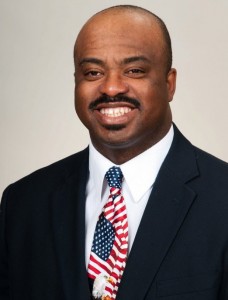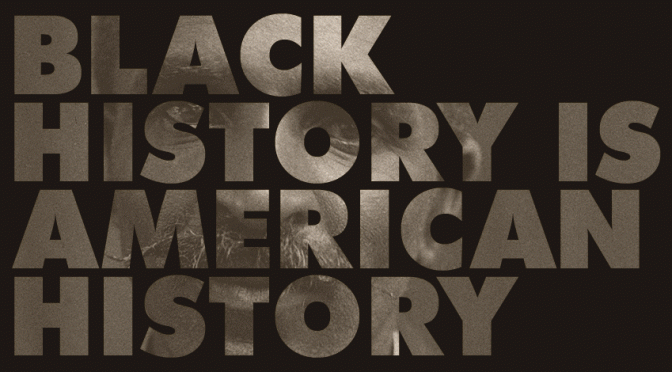There is a lot that we, as Americans, do not know about what is now called Black History Month.
Here are two pieces from Stacy Swimp at the Project 21 website on the subject.
The Origin and Purpose of Black History Month
History is a clock that people use to tell their political and cultural time of day. It is also a compass that people use to find themselves on the map of human geography. History tells a people where they have been and what they have been, where they are and what they are. Most important, history tells a people where they still must go, what they still must be. The relationship of history to the people is the same as the relationship of a mother to her child.
– J.H. Clarke

February is observed as “Black History Month” in America.
Its precursor, “Negro History Week,” was created by Dr. Carter G. Woodson in 1926 and observed on the second week of February.
A staunch Republican, Woodson choose that week in that month to honor the birthdays of Frederick Douglass and Abraham Lincoln.
Woodson created Negro History Week because black Americans and their accomplishments were largely left out of the educational curricula of that time. Where blacks were mentioned, it was usually very demeaning imagery or discriminatory ideas.
Woodson founded the Association for the Study of Negro (now African-American) Life and History in 1915 and the Journal of Negro History in 1916. He was dedicated to helping educate black and white Americans about blacks and their accomplishments and potential in a way that would benefit everyone.
His week-long observance was expanded to become Black History Month – officially recognized by the U.S. government – in 1976.
Unlike it often seems to be today, Woodson never intended black history to be about black firsts and a parade of black icons. Woodson was a scholar. He intended this observance as a means to get around the institutional hatred of the era and ultimately have this new information included in the teaching of American history, period.
In particular, Woodson wanted black Americans to understand the strong family values, work ethic, sense of individual responsibility, spirit of entrepreneurship and incredible dignity that was indicative of black Americans and their African ancestors.
This educational pursuit was also important to Woodson because he felt that historical awareness would inspire black Americans of his time to avoid becoming dependent on government to do for them what they could do for themselves.
Woodson also believed that, if white Americans knew the true history of blacks in America and in Africa, it would help overcome negative stereotyping.
Negro History Week was envisioned as a tool to develop and cultivate new awareness and new critiques. It was about unity. It was not a basis for ethnocentric pride and cultural divide – the path radical black Americans on the left have pursued over the past few decades.
I personally take advantage of the national spotlight that Black History Month provides to educate others about the real history leftist scholars rewrite or ignore, and stress the original purpose of Negro History Week.
Woodson’s vision was that someday a special week or month would no longer be required in order to appropriately honor black Americans and their accomplishments. Black history is American history – and a year-round school curricula relevant to all.
But that won’t occur under the oversight of the U.S. Department of Education as long as there continues to be a left-wing domination of public education.
When we segregate months to highlight ethnicities and genders, we cease to simply recognize accomplishments and instead encourage disunity among Americans of all stripes. The political left deserves scorn for their determination to keep America divided along ethnic, cultural and so-called class lines.
I am thankful for the work and the vision of Dr. Carter G. Woodson. History is indeed a human need. His contribution and that of other black Americans is considerable and far too important to ever be compartmentalized into just one month.
I pray for a day when Dr. Woodson’s desire to observe “Negro History” comes to proper fruition.
Black History Month Makes a Mockery of Black History
During “Black History Month” most people focus on black America’s “heroes.” Stories are shared about the past, or what some call the “black experience” in America.
Unfortunately, Black History Month seems to have become a mechanical celebration of a few people and a few things that are deemed appropriate by the media and black establishment.
This tired programming doesn’t do justice to the vision of Dr. Carter G. Woodson, the founder of “Negro History Week” — the precursor to Black History Month.
I suggest that merely heralding a few black heroes and situations is a perversion of the reason Negro History Week was originally created back in 1926.
The great Dr. Woodson believed we study black history to learn an historical perspective to use to deal with modern problems and practices.
Dr. Woodson wanted black Americans to understand where we came from, who we were and what we had done so that we might also understand where we really are, who we really are and what we can do today as well as where we still need to go, who we still need to become and what still must be done.
Negro History Week, as Dr. Woodson saw it, was not simply a commemoration or a celebration — it was a call to action.
His hope was that, by learning the valuable lessons of history, we would not make the same mistakes. Likewise, studying history and learning about the struggles of the past should motivate us to take some level of personal responsibility in making our home, neighborhood and society at-large a better place to live, work and play.
In his speech to the National Urban League’s annual conference on September 6, 1960, Dr. Martin L. King, Jr. provided a strong indictment of the black community’s failure to honor heroes with personal integrity and dignity rather than with phony ad hoc observances, saying: “The Negro must make a vigorous effort to improve his personal standards… One of the sure signs of maturity is the ability to rise to the point of self-criticism.”
We are suffering today for not properly studying, understanding and acting in response to the lessons of yesterday.
As a result, too many of us have become cynical and disillusioned. Some of us have conditioned ourselves to perpetuate a system of segregation. We have lost touch with an important something that’s called initiative.
Too many now cite the oppression of the past as an excuse for modern mediocrity.
Many of us also live beyond our means, spend money on frivolities and fail to give to serious causes, organizations and educational institutions that so desperately need our charity.
In that same 1960 speech to the National Urban League, Dr. King said: “Our crime rate is far too high.”
It is indeed an insult to the legacy of so-called Black History Month heroes that so many of us claim to honor when we too often live our lives in direct contrast to the values and principles that they challenged us to maintain.
Black History Month celebrations, in my opinion, have all-too-often become something other than an honorable commemoration.
It’s not an outright mockery, but the ways we sometimes behave would surely disgust Dr. Woodson and the people about whom he sought to teach us. They would be disgusted at how their contributions are increasingly being wasted.
If they saw how we commemorate Black History Month today, I think our forefathers might say: “Keep your fake celebrations. Try practicing some integrity and self respect.”
# # #
Stacy Swimp is a member of the national advisory council of the Project 21 black leadership network. Comments may be sent to Project21@nationalcenter.org.
